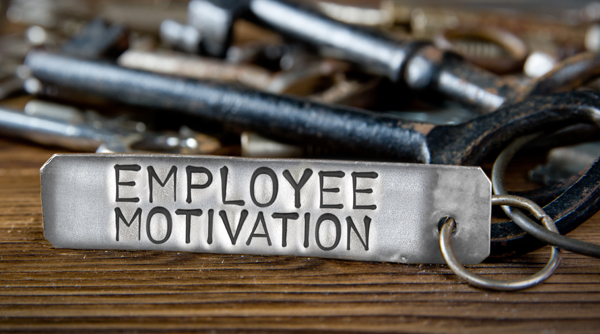
What is outcome-based measurement?
26/03/2018Culture & values – what’s it worth?
19/03/2018A Thousand Onboarding Firsts
When was the last time you started a new job at a new company and had a positive onboarding experience? What were you thinking in the days leading up to the new job and what was your first day like? In case your ‘Dear Diary’ entries are bit vague from that time, here’s a quick refresher on some of the things that probably went through your head…
When you accepted the offer to join, you were saying yes to one of the most wonderful experiences humans have; to become a part of a group. More than just being invited to join this organisation, you were excited about the new position; the new responsibilities, the new culture and, especially, the first day. A new chapter in your life, new adventures, new challenges, people and a new place for you to prove yourself to the world. This organisation invited you to join them and it felt great.
You were also a bit nervous that you were the newbie. The outsider. You were nervous about asking questions so you didn’t appear petty, irrelevant or downright stupid. You were concerned about what you were going to wear. And you might have made a dry run to practice your commute or written down questions for your first meeting with your new boss. You might even have tried to memorise some of the names of your new teammates. Or you might have been concerned about learning all the relevant skills needed to do your job. In summary, you were embarking on the early stages of your onboarding journey.
Four Keys to Successful Onboarding (EAST)
Regardless of the role, experience and age, everyone experiences similar challenges to some degree. The message to employers: The first day of onboarding a new hire is your opportunity to get everything right. There are four keys to make the first day one that is memorable for all the right reasons.
Make Onboarding Easy
The first day starts with getting to work. Sure, Google Maps can give directions. But as the new boss, you can lower stress for the new employee by offering insider tips. “Once you get off the train, head out of the station onto 4thStreet and walk toward downtown. Enter the door under the sign that says The 421 Building and tell reception to ring me. It’s about a 7-minute walk from the train. And if you pass the bakery, you’ve gone too far!”
And make sure cultural quirks are shared to warn them. “Because of the big game, everyone will be wearing team jerseys on Monday.” Be sensitive to the fact that whatever you take for granted because you’ve been there for some time is completely unknown to your new hire. Make their welcome and first day of their onboarding experience an easy one.
Make Onboarding Attractive
Just because the new hire has decided to take the job, don’t stop selling them on how much you want them. Continue to make the onboarding experience attractive to them. Start by warming them up with a phone call the week before they start. Let them know you’re excited to have them on your team and offer up time for the new hire to ask questions.
Because we are attracted to things that are relevant to us, make sure the things that get personalised in your office are properly personalised for your newbie. Print their name on the folder of welcome documents when they walk in the door. Name tags, security credentials and any legal documents should have their name correctly filled in. Legal name on legal documents and nickname, if they prefer, on name tags and name plates. Everyone likes it when other people get their name right – don’t miss this small step to make the new job attractive to them.
As silly as it may seem, start with praise and recognition on the first day. “I know the paperwork can be a pain, but I appreciate the effort and focus you’re putting on it. You’re doing great. ”There’s no reason to be disingenuous, but don’t pass up opportunities to remind them of how you’re aware of the effort they’re putting into their first day. That will go a long way in establishing vivid memories that contribute to greater retention and enhanced referrals, when you need them.
Make Onboarding Social
Work is possibly the most significant community that we belong to because of the time we put into it over the span of our working career. That community has an impact on the new hire’s life and the newbie wants that community to accept them in return. We all want to be accepted.
Let the newbie know that he or she is accepted, welcome and that you are full of hope for their success. Thomas Jefferson’s mother supposedly said to her young son when his school expelled him for poor performance that she was proud of him; and that the teacher believed he was such an exceptional student that he needed a different class to challenge him!
Foster a support network that the newbie can rely on. As you introduce coworkers, connect a reason for the new hire to know them. “This is Sasha, he’s great with office paperwork. And this is Gina, she’s terrific with technology issues.” The newbie is unlikely to remember all the specifics but knowing there is a supportive social network is key to getting off to a good start.
Part of the social onboarding process should include one-to-one meetings with relevant team members and associates from the organisation. Get the newbie to commit to setting up meetings with a list you provide and as they achieve those mini-milestones, be sure to recognise the effort and achievement. Small as it may be, we want the social side of our lives to work without trouble.
Make Onboarding Timely
There are certain times when we are more ready to change than others. We are more apt to reignite our gym membership when we start looking at swimsuits in the Spring. We are more apt to buy life insurance after the birth of a child. Timing matters and authors Daniel Pink in When and best-selling researcher Robert Cialdini, PhD in Pre-Suasion both emphasise the timing and sequence of events and how they impact behaviour change.
Asking your newbie on their first day for a commitment to meet with each member of the team will gain compliance. And it can be more nuanced than that. Don’t ask the newbie to commit to work objectives until they’ve got an understanding of the job. The first commitments they should make is to be learning the necessary job skills and demonstrating them in a timely fashion.
Also, how time is spent is equally important. Having big gaps in the calendar before the newbie knows how to do the job will lead to listlessness. Make sure you pack their days with relevant learning opportunities until they have a feel for the work. Then, you can more easily fill downtime with tasks from the backlog.
Easy, Attractive, Social, Timely
Since our brains are not digital cameras recording every single moment humans pay attention to, and remember, the vivid extremes in life. That means that a single, small experience at the wrong time can over-influence our memories.
A study was conducted with the ostensive purpose of asking classical music critics to rate the performance of a conductor (when listening on a vinyl record). All the people in the study listened to the same recording. Some listened to perfectly clean recordings. Some listened to records that had a scratchy sound in the middle and some had a scratch at the end of the recording. At the conclusion of the listening session, the critics rated the conductor’s ability with the particular piece of music. Critics who heard the scratch at the end of the performance rated the conductor’s performance lower than the critics who heard no scratch in the recording.
Key Onboarding Tips In Summary
Be careful how you create all of the ‘firsts’ for your new hire. Each first impression contributes to their opinion of the company and that links to their happiness on the job. It affects their emotional engagement with the company and their satisfaction with their manager.
Make their introduction to the company Easy; make their first day Attractive; leverage the Social side of their new workplace and make your communication with them Timely.
Plan ahead and help your newbies feel wanted; just like you wanted to feel when you first joined.
Tim Houlihan applies the behavioral sciences to workplace engagement and consumer behavior to corporations around the world.
Have your say and tweet us @ClearVoiceComms
At ClearVoice Comms, we are experts in delivering employee engagement and communication strategies that inspire your people and transform your business. We influence change through the power of communication to improve your company’s performance. For more information or help with creating a positive onboarding experience, call or email us today and let us show you how the power of communication can change your business.





